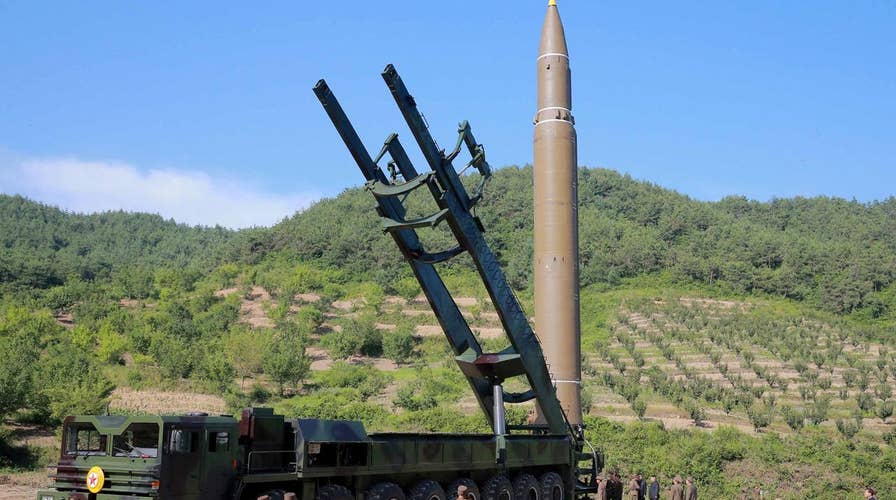As despot Kim Jong Un prepares Pyongyang to flout international pressure with yet another intercontinental ballistic missile test, the Chairman of the Joint Chiefs of Staff has hinted there may be only “a few more months” left to solve the North Korean dilemma via diplomacy.
U.S. officials have told Fox News there has been activity in North Korea in recent days – including moving a variety of gear – at a launch site where Pyongyang previously test-fired its intercontinental ballistic missile, known as the KN-20, on July 4.
The rogue regime’s test may come as soon as Thursday – which marks 64 years since the signing of the Korean Armistice Agreement, which established the demilitarized zone between North and South Korea, and put a cease-fire into effect.
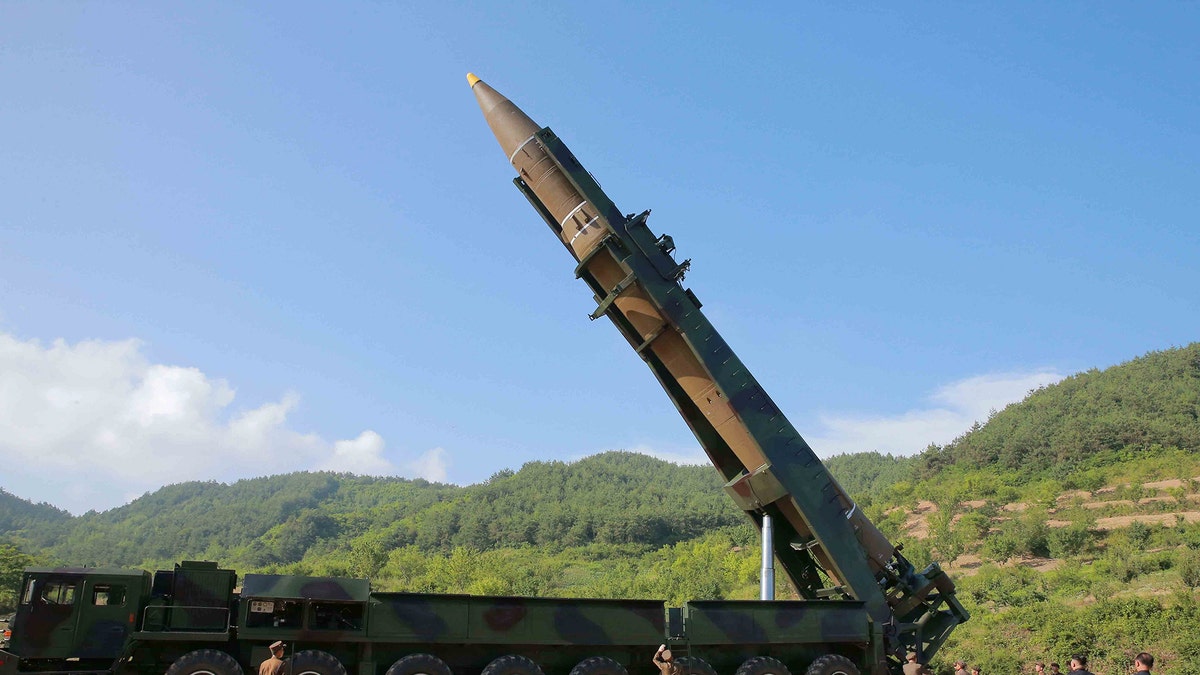
The intercontinental ballistic missile Hwasong-14 is seen in this undated photo released by North Korea's news agency. (Reuters)
The missile tested earlier this month flew more than 1,700 miles into space before a re-entry vehicle sped back to Earth, splashing down in the Sea of Japan.
Last week, North Korea performed an “ejector” test from a ballistic missile submarine below the sea — the first stage necessary to launch an intercontinental ballistic missile while submerged. North Korea first test-launched a missile from a submarine in April 2016.
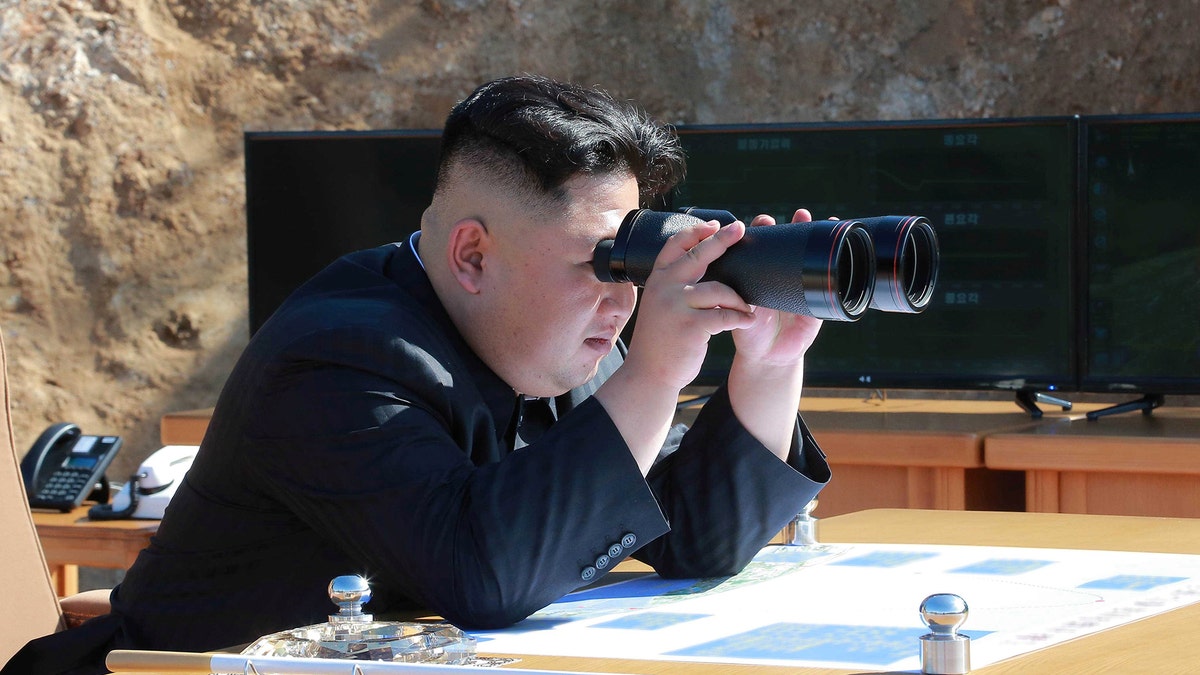
North Korean Leader Kim Jong Un looks on during the test-fire of intercontinental ballistic missile. (Reuters)
The latest possible escalation comes as Chairman of the Joint Chiefs of Staff Marine Gen. Joseph Dunford said Americans must prepare for the possibility of a military confrontation and suggested the Trump administration is giving diplomacy only “a few more months.”
CHINA REPORTEDLY PREPS FOR CRISIS ALONG BORDER WITH NORTH KOREA
While speaking Saturday at the Aspen Security Forum, Dunford described North Korea’s nuclear ambitions as “our number one challenge” from a “sense of urgency” perspective.
“Many people have talked about military options [against North Korea] with words like ‘unimaginable,’” Dunford said. “I would shift that slightly to ‘horrific.’ It would be a loss of life unlike any we have experienced in our lifetimes. Anyone who has been alive since World War II has never seen the loss of life that could occur if there is a conflict on the Korean peninsula.”
He added: “It is not unimaginable to have military options on the Korean peninsula. What is unimaginable to me is allowing a nuclear weapon to land in Denver, Colorado. My job will be to develop military options to make sure that doesn’t happen.”
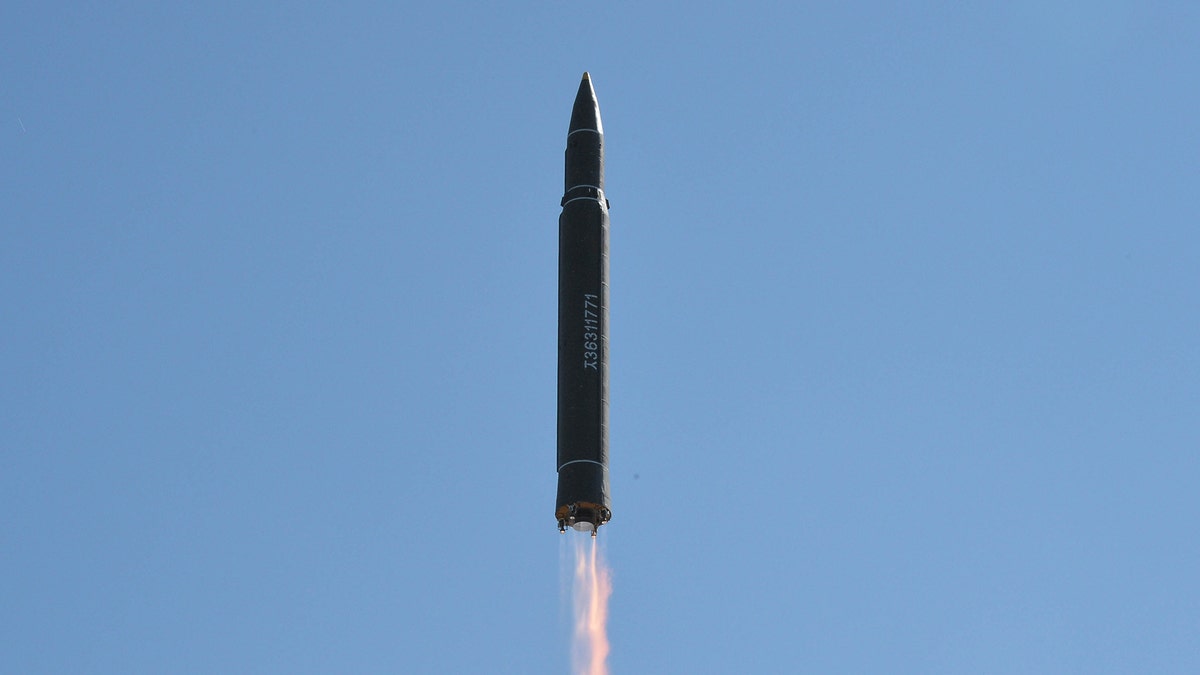
An intercontinental ballistic missile is seen during a test. (Reuters)
While Dunford said the best approach to dealing with North Korea is through the diplomatic and economic realms that are the forte of Secretary of State Rex Tillerson, he pointed out Kim Jong Un's grip on power is “inextricably linked to nuclear weapons.”
“So, I think for all of us, we should give Secretary Tillerson full support in attempting to resolve this diplomatically and economically, even as we recognize that it may not happen, and there may have to be a follow-up option, which is the military option,” Dunford said. “We can wring our hands and say it will never happen, or we can roll up our sleeves and make an effort to have a concerted economic and diplomatic plan that does cause KJU, Kim Jong Un, to come to the table and begin to have a conversation, at least stop the path that he’s on right now, which is further development of intercontinental ballistic missiles and nuclear capability. And to me it makes all the sense in the world to prove the theory of the case and to work this for a few more months.”
DEFECTORS, GOOGLE EARTH MAP DECADES OF HORROR IN NORTH KOREA
On Tuesday, The Wall Street Journal reported the Chinese military has been building up defenses along its border with North Korea, citing a review of official military and government websites and interviews with experts.
The paper reported that Beijing has built bunkers to protect against nuclear blasts, established a new border brigade and is engaging in 24-hour surveillance of the mountainous frontier. The preparations are intended to respond to worst-case scenarios, like an economic collapse, nuclear contamination or a conflict, experts told The Journal.
The Chinese government has not spoken out about the report of preparations. An official from its defense ministry said in a statement that the forces “maintain a normal state of combat readiness and training.”
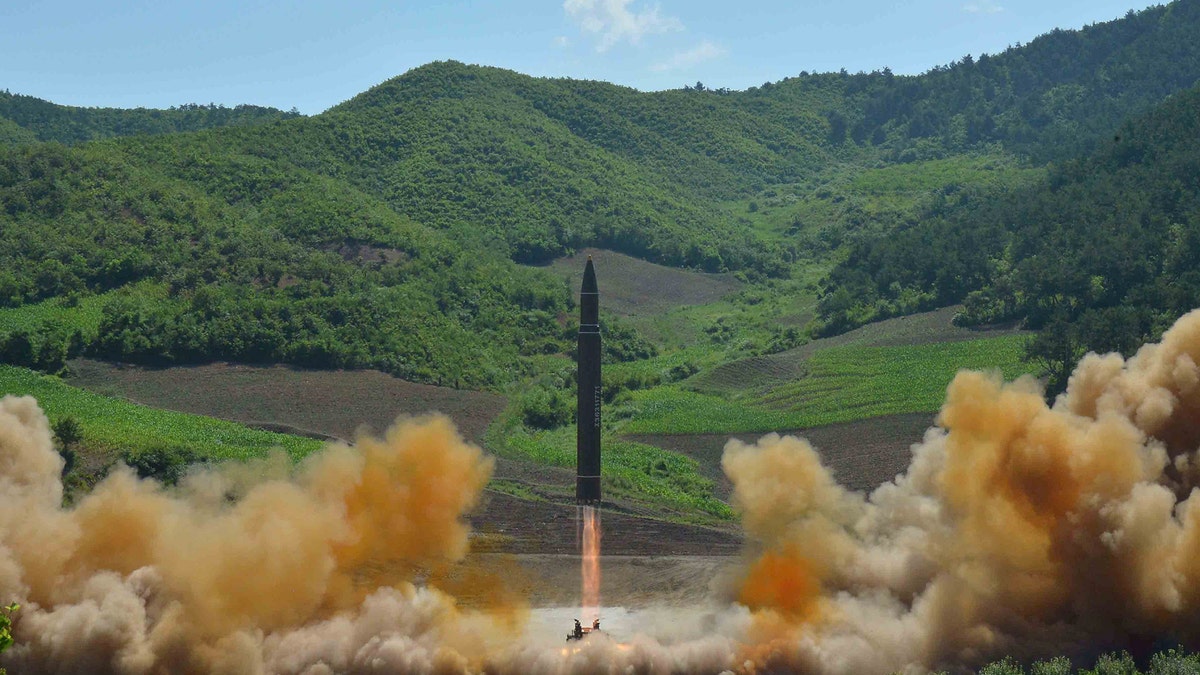
An ICBM is seen during a test launch. (Reuters)
“Military means shouldn’t be an option to solve the Korean Peninsula issue,” a Chinese Foreign Ministry spokesman said.
Mark Cozad, who works at the Rand Corp think tank, told The Journal these preparations “go well beyond” creating a buffer zone at the border, however.
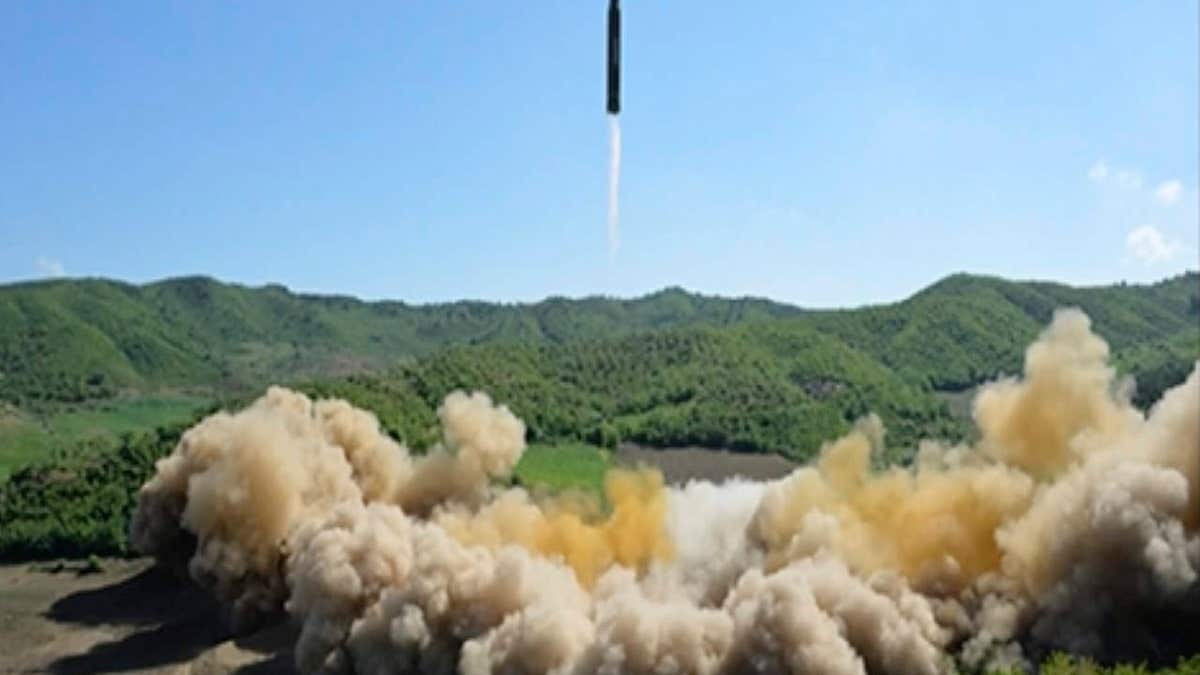
An ICBM is seen lifting off during a test launch in July. (Reuters)
“If you’re going to make me place bets on where I think the U.S. and China would first get into a conflict, it’s not Taiwan, the South China Sea or the East China Sea: I think it’s the Korean Peninsula,” he said.
Fox News' Greg Palkot and Lucas Tomlinson contributed to this report.
